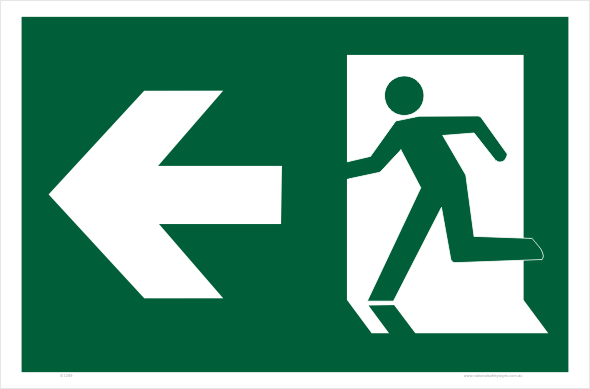Grammar Chaos: The Red Tape between Escape and Scape
Posted on Sep 27, 2017
When is it correct to use escape or scape in a sentence? The difference is more than meets the e!

Picture a detective hot on the trail of a clever art thief. The detective, Mr. Eeyus, is in the midst of the crime scene in an art gallery. A shattered window by the entrance marks the criminal’s escape. Out the window, Mr. Eeyus observes the city’s landscape and tries to picture where the thief could’ve gone after stealing one of the gallery’s renowned paintings. What is his next step?
In this story, both escape and scape are used in different sentences with clear yet distinct contexts. So why do people still confuse the two words? One reason could be the British addition of the letter e to some words without changing their definition. For example, especial and special mean the same thing, except especial is used in formal contexts. But let’s not assume escape and scape are synonymous!
The word escape simply means “to exit a place or the act of exiting itself.” One might say that Mr. Eeyus knows how the culprit escaped or that he knows the details of the culprit’s escape.

Below are some examples of how escape is used in a sentence:
She thought about escaping through the back door when she heard a noise above her.
I managed to escape another lecture from my teacher about being late to class.
The Great Escape, released in 1963, is my grandfather’s favorite movie.
Scape is more commonly used as a suffix to other words, referring to their expanse (e.g., landscape, seascape, cityscape) and seldom used as a lone word, unless one refers to a plant’s stalk or an animal’s feather or antenna.
Some examples of sentences using scape (as a suffix) include the following:
The artist put out his thumb to gauge the landscape he wanted to paint on his canvas.
At night, the cityscape is riddled with lights along streets and in shops and buildings.
She tried to look at the seascape before her but couldn’t see through the fog.
Also, remember that scape means differently from ’scape, the contraction of escape!
I ’scaped from the coppers just in time!
To conclude, while escape is commonly used as a noun or a verb, scape is commonly used as a suffix. Keep that in mind the next time you, like Mr. Eeyus, capture escaped criminals in a complicated cityscape!
Eager for grammar tips like this one? Head on over to the Grammar Chaos series at the 1-Hour Proofreading blog for more similar words with far-from-similar uses.
Sources:
- the difference between 'escape' and 'scape', also 'especial' and 'special'
- Escape vs Scape - What's the difference?
- scape
Disclaimer: Images are not ours. Credit to the owner.
About 1-Hour Proofreading
1-Hour Proofreading is a growing start-up offering fast and efficient editing services at a reasonable price, with the assurance that the document is publication-ready the soonest you need it. Its team of highly competent professional editors is committed to helping those in need of quality editing services while facing tough deadlines.
Visit 1hourproofreading.com for more details.
Follow us:
Back to Grammary



